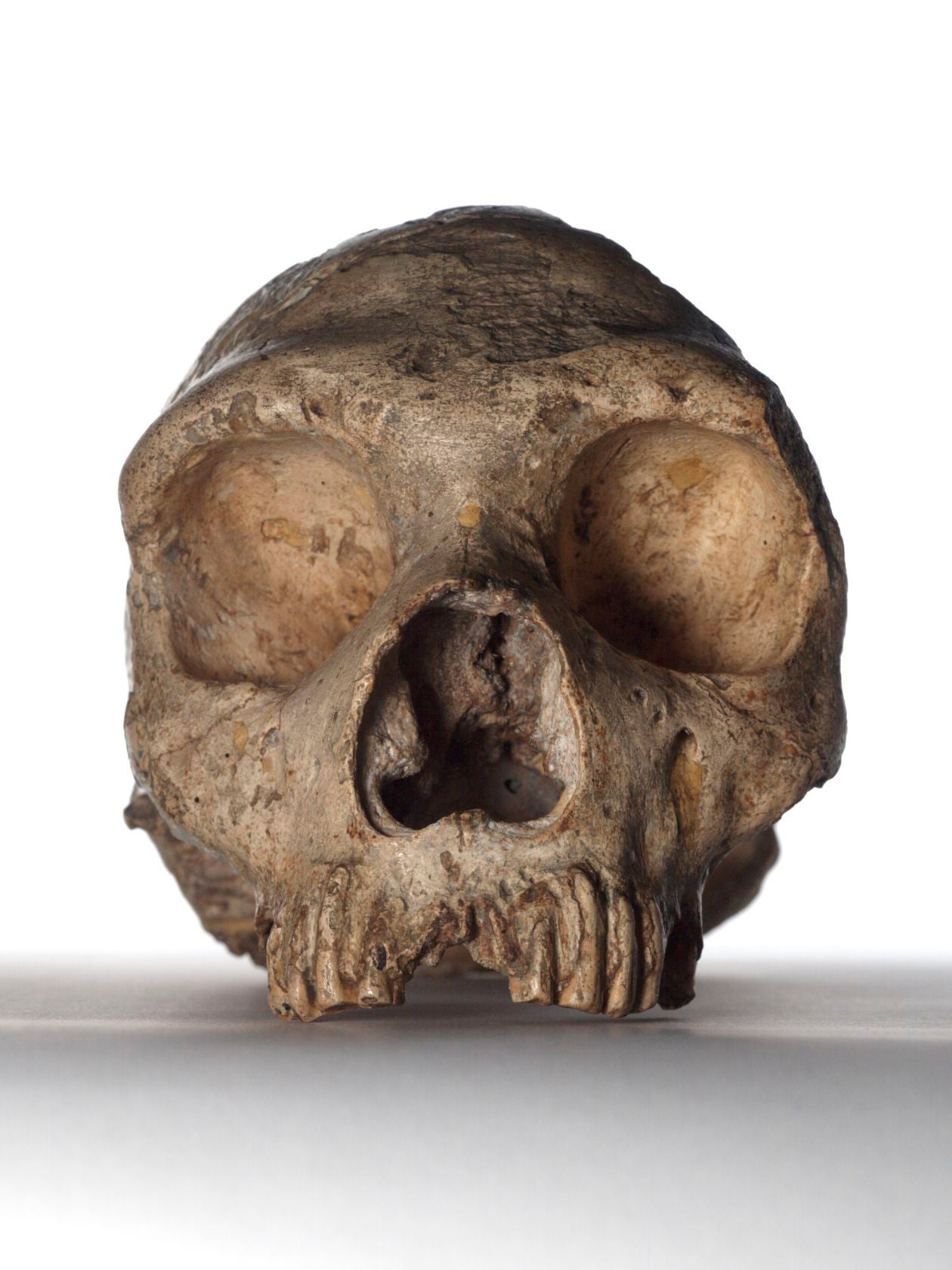Neanderthals' large eyes led to their downfall, says study

Neanderthals became extinct because they had larger eyes than modern-day man, a new study of their skulls suggests.
This meant that a larger section of their brains was devoted to maintaining good vision during the long, dark nights of the period, leaving less room for higher-level thinking processes and eventually leading to their extinction, scientists claim.
Although their brains were similar in size to those of modern-day man, new analysis of fossil data by the University of Oxford and the Natural History Museum in London shows that their brain structure was markedly different. Significantly less space was devoted to the cognitive functions that allowed Homo Sapiens to survive the ice age by creating warmer clothes and developing larger social groups.
"Since Neanderthals evolved at higher latitudes and also have bigger bodies than modern humans, more of the Neanderthal brain would have been dedicated to vision and body control, leaving less brain to deal with other functions like social networking," said lead author Eiluned Pearce from the Institute of Cognitive and Evolutionary Anthropology at the University of Oxford.
"Smaller social groups might have made Neanderthals less able to cope with the difficulties of their harsh Eurasian environments because they would have had fewer friends to help them out in times of need," Pearce said.
"Overall, differences in brain organisation and social cognition may go a long way towards explaining why Neanderthals went extinct whereas modern humans survived," he said.
The study is published in Proceedings of the Royal Society B.
Subscribe to Independent Premium to bookmark this article
Want to bookmark your favourite articles and stories to read or reference later? Start your Independent Premium subscription today.

Join our commenting forum
Join thought-provoking conversations, follow other Independent readers and see their replies